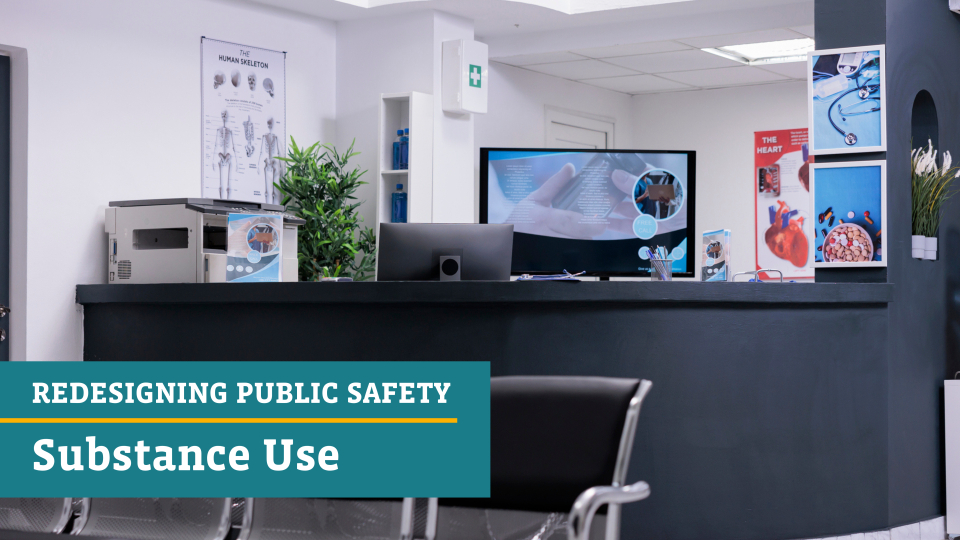The opioid overdose epidemic has made clear that the criminal legal system is ill-equipped to deal with this public health issue. Over the past several decades of aggressive police force as the predominant response to drug use, illegal drug prices have declined, and the annual number of overdose deaths has risen fivefold since 1999. Our nation’s longstanding “war on drugs” has been, since its inception, racist and profoundly ineffective. Ensnaring people who use drugs in systems of punishment exacerbates substance use problems. These practices also add undue stressors to the root causes of substance use, like poverty and lack of access to social services. Police officers themselves agree that the status quo isn’t working: in a 2018 study, only 11% reported believing that the war on drugs is reducing drug use.
By treating substance use as a public health issue rather than a public safety issue, we can supplant punishment with harm reduction—strategies that focus on ensuring that people who use substances live healthy lives rather than solely focusing on eliminating drug use. These strategies include not only increasing access to evidence-based treatment but also basic needs like housing to help people get the footing they need to manage their drug use and health.
Shifting substance use response to a public health approach will take time, but communities can build various solutions that help facilitate this change. For example, cities are deploying mobile crisis teams of emergency medical staff and peer recovery specialists with experience in substance use to respond to overdose calls. By using a non-judgmental approach with no threat of punishment, these programs can better provide life-saving interventions like Narcan, clean needles, and fentanyl test strips, as well as facilitate access to treatment. For all first responders, including police, crisis stabilization units—centers where medical professionals can provide mental health and substance use disorder care—can provide a helpful option for urgent care and have been shown to reduce involuntary hospitalizations.
From law enforcement to harm reduction advocates, we can all agree that communities deserve the resources and tools they need to feel safe and healthy. That’s why we have just published a white paper on substance use. The fourth in our Redesigning Public Safety Resource Series, this white paper highlights 23 recommendations for meaningfully and sustainably reducing substance use and its associated harms beyond mass criminalization and punitiveness. It’s also being published alongside a community toolkit that can help concerned community members take advantage of new funding opportunities for addressing substance use and advocate for harm reduction programs that their communities need.
Treating substance use as a crime rather than a public health issue has engendered stark racial inequities without reducing the harms of substance use in our society. The result has been widespread devastation of Black communities at the hands of both police and the drugs themselves. The stakes are life and death. The recommendations in this report and the companion brief offer starting points for responding to substance use in ways that promote safety, equity, and health without counterproductive punishment.
Substance Use Resources:

Individuals like you power all of our work. Consider donating today to support programming like this and other critical public safety redesign work.

